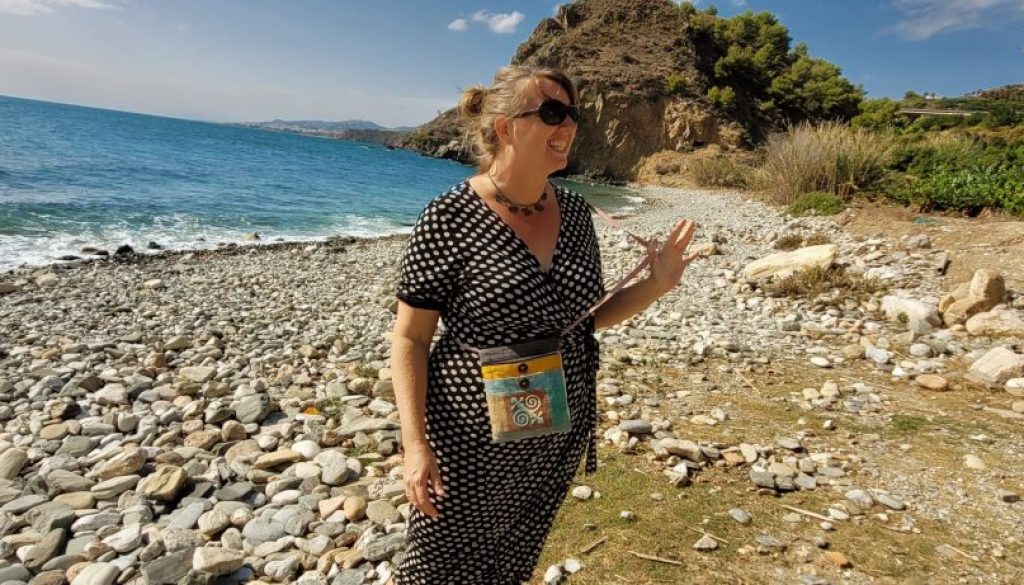The Power of Releasing Shame
For a long time I was utterly convinced that I was a shoddy, not very good, sort of person. That if I couldn’t meet my expectations of myself just so, I felt like I was letting my family down, myself and probably the rest of the world.
If I ate the ‘wrong’ foods.
If I didn’t do a work project perfectly.
If I lost my temper with my kids.
Even from things that weren’t under my control.
If my husband was too tired to go out with me, it meant I wasn’t exciting enough.
If my friend didn’t call me back when she said she would, it was because I wasn’t as interesting as her other friends.
The list was endless.
Inside of me there was an internal framework of expectation, of what a good version of me looked like. And if I defaulted from this one little bit – or let’s be honest, I was always very, very far away from this idealized version of myself – I would feel so darkly disappointed in myself.
And this, my friends, is shame.
Shame that keeps us in line.
That tries to get us to adhere to certain expectations of ourselves.
To be different to who we naturally are.
For if we transgress those lines, shame is there waiting, trying to force us back into this narrow framework of acceptability.
Why does it do that?
In the distant distant past we absorbed ideas that we had to behave a certain way in order to have belonging.
Usually in our families, or from schools, other institutions, work etc.
Belonging is essential for us humans, as we are group animals. But, in particular, it’s essential for us as children, we need it to survive.
The subtle messages we received were: don’t be like you, be like this instead!
Which can come in a variety of ways:
-
Why can’t you just be hard working like your sister?
-
What is wrong with you? You’re always so loud!
-
Speak up! Stop being so shy!
-
You’re really terrible at Maths, aren’t you?
-
Etc. etc.
And when we receive these messages that being just who we are isn’t desirable, isn’t acceptable, is even a punishable offence – then shame arrives to try and help us stick to the lines that have been drawn for us.
On this side you’re acceptable.
On that side you’re not acceptable.
And here is shame with a stick trying to prod you and make you stick to the acceptable side of the line.
Int his way shame is trying – in its rather forceful, judgmental-sounding, ultra simplistic way – to keep us safe. To be able to secure our belonging with our family, our group, our community.
And the more we were reminded that being who we are isn’t ok, the more shame we will have. And then hidden away in the darkness of our being, unseen and unheard, shame grows and grows and grows until we have way too much of it.
The challenge of course is that we are trying to behave in certain ways according to someone else’s usually arbitrary rules. And then we grow up and maybe we want to be more authentic and more ourselves.
But if we have a tremendous amount of shame that has been with us since childhood, it’s so hard to move into that space of authenticity.
If we haven’t offloaded and moved through the shame we have held since childhood, it just gets bigger and bigger and bigger.
And then it blocks our ability to be authentic.
To like ourselves exactly as we are.
To be gentle and kind and loving of ourselves.
To accept our innately messy humanness.
To be compassionate.
To just be who we are, with all of our quirks and loves and joys.
And it can feel so tricky to dismantle the shame because the judgements that shame issues sound so very logical, don’t they?
Of course I don’t want to shout at my kids!
Or make a mess of a work project!
Or be really unhealthy!
And because it sounds potentially reasonable and logical to berate ourselves over behavior we don’t love, we totally buy into what shame says about us.
We buy into the expectations and either doggedly follow this rigid framework of who I should be in order to be an acceptable human being and try desperately hard not to take a step wrong, or use the framework to continuously berate ourselves with.
But we don’t usually examine the weight of self punishment that shame issues for the things we’ve done wrong.
Is eating some unhealthy food worthy of self-accusations of being an utterly dreadful human?
Is missing a deadline worthy of judging ourselves to be a useless, pathetic human being?
Is the punishment worthy of the crime?
And if you’re still on the fence about this, if I were to ask you to think of your very favourite friend. Someone you deeply love. Or it could your child, partner etc. someone you love deeply and would hate to see shamed. Would you recommend the shame punishment befall them in the same way it should befall you?
Is this person you love deserving of the same punishments as you?
I thought not.
Shame is a fascinating emotion because by unlayering it in ourselves – by moving shame from our bodies out into the light – we release it permanently from our bodies. And what fills this shame-shaped space – is a totally new feeling.
One of self-acceptance.
Genuine self-care.
An abundance of self-love.
And instead of having to always toe the line to be as close to perfect as we can be – we get to be what humans actually are – messy, imperfect, changeable, fascinating, unique, with our own array of wide and beautiful quirks & gifts.
And in fact if there are things we do genuinely want – to be more healthy, to be more successful, to not explode at our families all of the time – these things are so much easier to do without the weight of shame.
Habit change is so much more powerful coming from a place of empowerment, compassion and love rather than punishment and force.
Standing in the way of you and a deep, genuine self-love is not you getting more successful, having more money, being thinner or fitter or younger, or being more acceptable in any way – but you releasing shame.
How does this land for you? Do you resonate with what I’ve shared? I would love to know.
Sending you so much love,
Diana
💗







